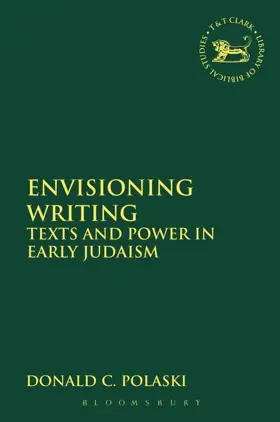

Envisioning Writing: Texts and Power in Early Judaism
in Library of Hebrew Bible/Old Testament Studies
Pages
256
Publisher
T&T Clark
Published
3/24/2016
ISBN-13
9780567027023
This work traces the development of Judaism as a Scriptural religion, claiming that this did not arise from discrete moments of "political" authority (e.g., Sinai, Josiah, Ezra), but was part of a complex and multifarious negotiation involving writing, literacy, orality and the socio-political power of the Persian, Greek and Roman empires.
- Table Of Contents
- Introduction - Writing, Orality, Power and Empire: A Model
- Section One - Prophets, Moses and Deuteronomists: Learning to Write
- The Written Prophets: Setting the Record Straight
- Deuteronomy and Moses (an expansion of my article from Postmodern Interpretations of the Bible)
- Josiah, Joshua and Imperial Textuality (a revision of my article from Semeia Studies)
- Section Two - Inscribing Yehud
- The Prophets Learn to Write (Ezekiel, Zechariah, Malachi)
- Nehemiah: Subject of the Empire (a revision of my paper delivered at 2004 SBL)
- Ezra: The Discipline of Letters
- Section Three - Engraved Invitations: Writing at the Table of the Powerful
- Esther: A Writing Carnival?
- The Letter of Aristeas: A Hellenistic Writing Symposium
- Writing and Resistance in Daniel 1-6 (an expansion of my JBL paper)
- Section Four - Writing and the Sectarian Subject
- Irresistible Texts
- Daniel's Vision and the Empire
- Jubilees and Torah
- 1 Enoch: Writing the Sectarian Subject
- Writing by the Dead Sea: 4QMMT as Signifier
- Conclusion